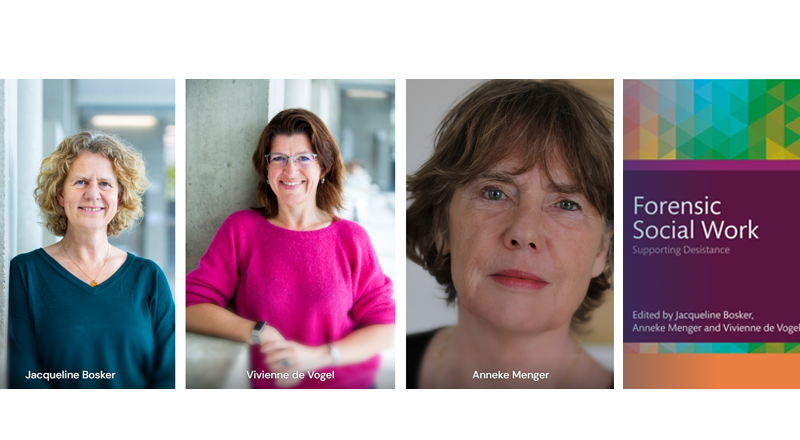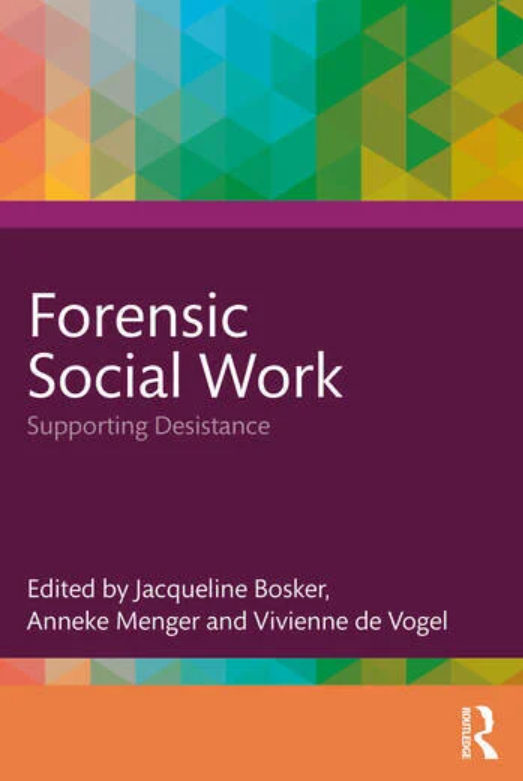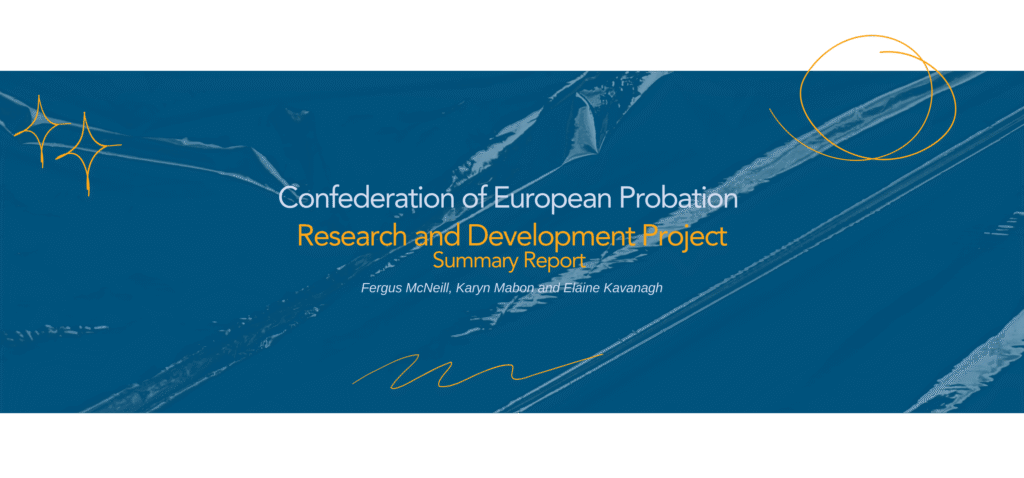Previous Article
Probation library
Recap: conference on Community Sanctions in Central and Eastern Europe
‘Probation needs to find its own identity’
A recap of the CEP Conference on Community Sanctions in Central and East European countries
From Wednesday 4 until Friday 6 June 51 experts from 16 different countries came together in Chisinau, the capital of the Republic of Moldova, for the first conference on Community Sanctions in Central and East European countries. 9 Individual participants presented the community sanctions system in their region: Croatia, the Czech Republic, Russia, Slovenia, Lithuania, Albania, Romania, Latvia and Moldova. A recap of the conference.
What works?
Rob Canton, professor at the De Montfort University in Leicester, UK named the main tasks of the Council of Europe: setting standards in the field of justice ; looking after cooperation between countries ; inspecting and following current activities and creating developments in the process of mutual learning. Very important is to make the difference between “what works?” and “what is justice?”. The ideal situation would be that Community Sanctions and Measures are the first way of punishing and prison would be used only in case these sanctions do not work. The challenge is now to transfer these principles into practice.
Complete presentation Rob Canton
Differences between Eastern and Western European countries
Natalia Delgrande, criminologist at the University of Lausanne, Switzerland, told the audience about the SPACE statistical research on Prisons and Community Sanctions. SPACE II is the Council of Europe tool for research practices and can therefore very well compare the situations in all EU member states. Natalia began by saying that the average number of prisoners in Europe is 176 per 100.000 inhabitants. Probation and alternative punishments are most of all used for juveniles, foreigners and female offenders, although there are large differences between the various member states, especially between Eastern and Western European countries.
Complete presentation Natalia Delgrande
From suspension without supervision to community services
Ioan Durnescu, senior lecturer at the University of Bucharest, Romania and CEP board member, gave an overview of Community sanctions in Europe. Community sanctions have their origin in the practice of “recognition”, as a way to add humanity to justice. The sanctions developed themselves from “suspension without supervision” to “community measures” that became more and more modern. In the course of years many discussions have taken place regarding the fact if community sanctions are cheaper? And do they decrease recidivism? Can they really replace imprisonment? It is therefore very important that Probation finds its own identity in order to detach itself from stigma and prejudices.
Complete presentation Ioan Durnescu
Probation service in Croatia: young and inventive
The Probation Service in Croatia (represented by Ms. Jana Spero, head of the probation sector under the Ministry of Justice) is a very young organization that has had many benefits from their cooperation with the UK and Czech Republic. They have made use of the Council of Europe rules as a guide in the building of their system. At the moment the organization has implemented a new law that allows Community Sanctions and Measures to be an alternative to short sentences in prison. A very special and remarkable part of the presentation was about the concrete and active use that the Ministry of Justice has of offenders during the floods in the country: a large group was brought together to help people in their houses and to remove for example dead cattle or other obstacles that blocked the roads.
Czech Republic: victims and offenders under the same roof
The Czech Republic (represented by Ms. Andrea Matousková and Mr. Jan Odvárka) has a unique probation organization since offenders and victims are treated under the same roof. The Probation and Mediation Service in Prague exists since 2001 and states that justice may be understood as restorative.
A manual of their best practices
Complete presentation Czech Republic
Russia: a new law for juveniles
Russia (represented by Ms. Natalia Khutorskaya, board member of PRI, Penal Reform International) is still at the very beginning of probation – in fact community sanctions do not exist here yet. Good news is that there is a draft new law for an alternative treatment of juveniles, which may be a start towards further developments.
Slovenia: a strong system of probation activities
The Ministry of Justice of Slovenia (represented by Ms. Slava Novak, Mr. Zoran Skubic and Ms. Renata Derganc Cizelj) does not (yet) have a single organized “umbrella” probation service. However it does have a strong system of probation activities, carried out by public prosecutors, social service centres, mediators and the prison system. Due to historical reasons and good relations with institutions from outside the criminal justice system this has never actually changed. There are 3 types of alternatives to prison: weekend imprisonment, home imprisonment and community service. The challenge for the future is to preserve the best practices, but to develop one central authority in the field of justice.
Complete presentation Slovenia
Lithuania: a huge growth of probation service
Lithuania (represented by Mr. Regimantas Mikaliunas, director of the Siauliai Probation Service under the Ministry of Justice) has experienced a huge growth of its probation service during the last 10 years. This has resulted in a more extensive use of new assessment tools, programmes and restorative justice. Since 1st of July 2012 also Electronic Monitoring exists in the country as a measure for alternative sanctions. Lithuanian projects for the future are aimed at domestic violence and risk assessment tools for juvenile re-offenders.
Complete presentation Lithuania
Albania: young fast learners
The Probation Service of Albania was represented by professor Rob Canton. He had recently been in the country and could therefore perfectly give un update on the actual situation. The probation service of Albania is one of the youngest in Europe: it exists only since 2009. This does not say anything however about their level of activity: they are very fast learners and extremely active in their possibilities for growing. The principal challenge for their future is to determine the exact position of probation within the overall justice system.
Romania: probation at central and local level
Romania was represented by three colleagues from the National Probation Directorate in various locations in the country, Ms. Anca Nicoara, Ms. Camelia Gaina and Ms. Lucia Campan. They told the audience that the first probation office in Romania dates from 1996 and that four years later, in 2000, the system was legally established. At the moment probation exists at a central level (the National Probation Directorate) and at a local level, containing 42 services all over the country. The cooperation with other jurisdictions is very important.
Latvia: best practices meet local needs
The State Probation Service of Latvia (represented by ex director Mr. Aleksandrs Dementjevs, actual director Mr. Mihails Papsujevics and CEP Board member Mr. Imants Jurevicius) has an advanced probation system that is moving forward very fast. An important issue for them is to learn from their best practices by transferring these principles to local needs. Also the Service is quite active in European projects and for the future they have the ambition to take on a leadership role in this, when time is ready.
Moldova: probation as top priority of justice policy
The Central Probation Office of Moldova, host country of the conference, was represented by many colleagues. The presentation of the system was given by Mr. Vladimir Popa, Head of the Service, and by Mr. Sergiu Margarint, Deputy Head. Moldova is in the middle of developments in the field of probation: actually probation is one of the priorities of justice policy in the context of legal reforms. The goals of the Central Probation Office are therefore to reduce overcrowding in prison, to modernize their institute and, last but not least, to gain the confidence of the public.

Probation library
Lorem ipsum dolor sit amet consectetur adipiscing elit semper dalar elementum tempus hac tellus libero accumsan.
Reading corner

Probation in Europe
The Routledge Handbook of European Penology
05/01/2026
The Routledge Handbook of European Penology, published by Routledge. This comprehensive volume has been edited by Sonja Snacken, Gaëtan Cliquennois, Ioan Durnescu, Diete Humblet and Elena Larrauri.
Reading corner

Criminal Justice
Bridging Research and Practice in Forensic Social Work: An interview with the editors of Forensic Social Work – Supporting Desistance
17/12/2025
Supporting desistance while managing risk is at the heart of criminal justice social work across Europe. In Forensic Social Work – Supporting Desistance, editors Jacqueline Bosker, Anneke Menger and Vivienne de Vogel bring together scientific insights and everyday professional practice to support those working with justice-involved individuals. In this interview, they reflect on the motivation behind the English edition of the book, its core themes, and how professionals can use its tools and approaches in their daily work.
Probation Journal

Domestic violence, Gender-based violence
New evaluation on whole family approach to domestic abuse
26/11/2025
Interventions Alliance has published a new evaluation of a Hub coordinated on behalf of police forces in the south of England, focused on tackling violence against women and children through a whole family approach. The Hub supports victims and perpetrators of domestic abuse and works across policing, health and social services.
Reading corner

Probation in Europe
New Release: Forensic Social Work – Supporting Desistance
13/11/2025
This book, Forensic Social Work – Supporting Desistance, has been released by Routledge. It is a practice-oriented resource exploring how forensic social work can support desistance and foster meaningful change in the lives of justice-involved individuals.
Reading corner

Criminal Justice
Parole Futures
18/08/2025
At a time when many parole systems are experiencing considerable strain, the aims of this collection are twofold: first, to encourage systematic and critical reflection on the rationalities, institutions and practices of parole. Second, to think big, and pose ambitious ‘what if’ questions about the possible futures of parole and prison release. Offering novel insights from Asia, Australia, Europe, North America and South America, this collection builds the case for, and then showcases, a ‘way of doing’ parole research that is global in outlook, interdisciplinary in approach and unapologetically normative in character.
Probation Journal

Violent Extremism
2025 EU Guidance document responding to the needs of victims of terorrism
23/06/2025
To mark the EU Day of Remembrance for Victims of Terrorism on 11 March, the EU Centre of Expertise for Victims of Terrorism has published a new Guidance Document on the Needs of Victims. This document is a significant step forward in reinforcing a victim-centred approach within counter-terrorism efforts across the European Union.

Research
Launch of the CEP Research and Development Strategy Summary
17/06/2025
We’re thrilled to announce that the Confederation of European Probation (CEP), in cooperation with the University of Glasgow (led by CEP Honorary Member Professor Fergus McNeill), and with the support of the CEP Expert Group on Research, has produced the CEP Research and Development Strategy. We are happy to share the summary with you!
Probation Journal

Alternatives to pre-trial detention
Unpacking criminal detention rules and regulations across the EU
21/05/2025
The EU Agency for Fundamental Rights (FRA) has updated its online criminal detention database, which includes national standards, laws, and monitoring reports on detention conditions in the EU and the UK.
Probation Journal

Technology
Is AI Putting Remote Probation Supervision at Risk Before It Even Starts?
09/04/2025
David Jackson and Jed Stone focus on the use of AI in probation and advocate for investigations to understand the opportunity, address issues and innovate for the good of all.
Probation Journal

Probation in Europe
New Executive summaries for the report on Building Probation Capacity
19/02/2025
In March 2024, we paid attention to the study of Steve Pitts and Leo Tigges about Building Probation Capacity . The executive summary of their publication is now available in French and German, including the infographic on capacity building in both languages. Later this year, translations in Italian and Spanish will also be released!
Subscribe to our bi-monthly email newsletter!
"*" indicates required fields
- Keep up to date with important probation developments and insights.

